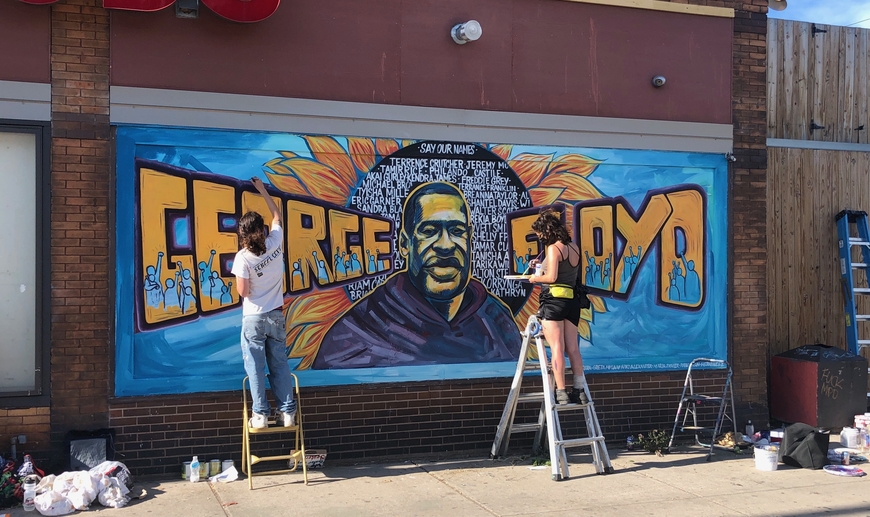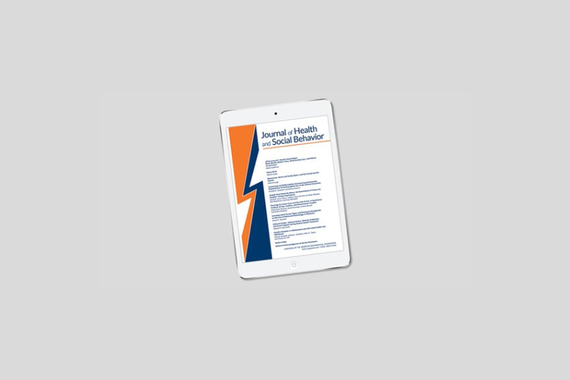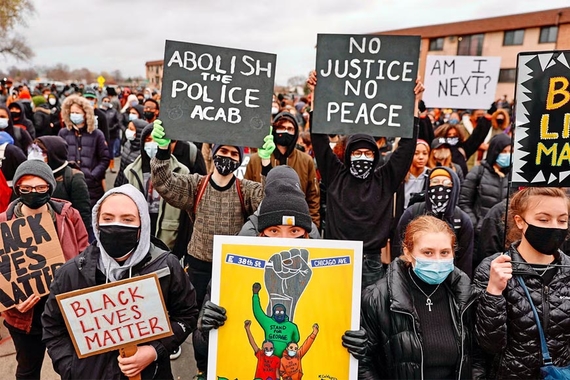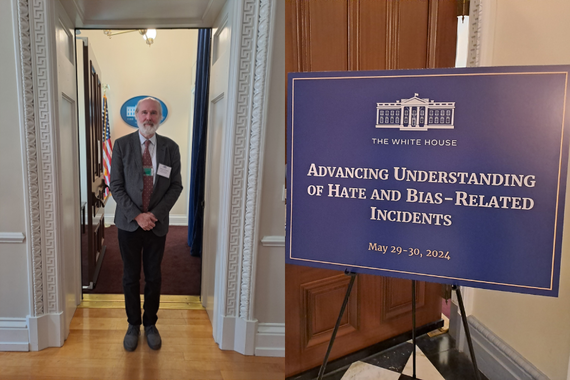George Floyd and the Minneapolis Uprising: A Statement from the University of Minnesota Sociology Department Faculty
As faculty of the Department of Sociology at the University of Minnesota, we write the morning after one of the most cataclysmic weeks in Twin Cities/Minnesota history, starting with the horrific murder of George Floyd by four officers of the Minneapolis Police Department. As our community reels from this tragedy, we find ourselves in the midst of the COVID-19 pandemic, which is particularly ravaging black, brown, and indigenous communities across the U.S.
We write, first, to express our collective outrage, despair, and grief over the murder of George Floyd. We write also to speak out about the broader forms of state violence and structural racism that led to Mr. Floyd’s death and the local, national, and international uprisings that have followed.
We cannot stay silent on these injustices, especially as we are members of a department that centers research and teaching on race and racism and the criminal legal system. While Minnesota prides itself on progressive politics, it is characterized as well by enduring racial inequities. Even more than other places, black people in Minnesota face starkly different life outcomes, in education, income, housing, health, wealth, and policing. As across the rest of the nation, these injustices are tied to a long U.S. history of institutionalized white supremacy, that includes the systemic devaluing of black lives and all too familiar rituals of beating, maiming, and torturing black bodies. These problems have not been systematically addressed through robust state action, and it is far too often that the state itself perpetuates and inflames them.
Third, we want to recognize the heavy toll that these displays of racial violence exact on the black faculty and students who are members of our departmental community, and who have participated in the writing of this statement, even at a time of tremendous grief and trauma. As sociologists, we know that the outrage, pain, and suffering in our community is not equally distributed. Some members of our community have been re-traumatized by instances of police violence or seeing National Guard members patrolling their streets and their neighborhoods set ablaze. Some of us have spent long days cleaning up our streets, facing harm at protests from officers and by civilians, patrolling our neighborhoods at night to defend against possible actions by white supremacists, and fearing for the safety of our children. Some of us lack safe access to grocery stores and pharmacies or are immuno-compromised and unable to leave our homes. We do not all see or experience this time in the same way, but we make this statement collectively in order to stand together as a community.
Moving forward, we reaffirm our Department’s commitment to research, teaching, and advocacy that creates justice and equity in Minneapolis and beyond.
In figuring out what to do and how to make sense of this time, we particularly commit to lifting up the voices of black scholars and activists, both in and outside of our immediate communities. We commit to “read, listen, talk, and act with intention,” as suggested in a powerful statement released by three black scholars on twitter earlier this week.
We are inspired by the protests against police violence and systematic racism that are taking place in cities across America. At the same time, we denounce the agenda of “accelerants,” white supremacists, and others who have come to intervene in the righteous and legitimate rebellion being organized in the streets, with no aim other than to use violence to sow chaos and division. We denounce as well the statements of elected leaders that will or are actively designed to rain down further violence and suppression upon black and brown and indigenous communities.
We recommit to advocating for greater equity on the University of Minnesota campus. For six years, our own committee on Diversity & Equity has fought to create a more inclusive and supportive academic environment for non-white faculty, students, and staff in the department and beyond.
We acknowledge the work of UMN student body president Jael Kerandi, a black woman, who called for the University to sever ties with the Minneapolis Police Department; and we were heartened to subsequently see President Gabel announce that the University would no longer contract with the MPD for events. We believe as well that the University of Minnesota’s own Police Department and any event-security staff hired by the University must treat all members of our community with respect and dignity, and find, whenever possible, mechanisms of ensuring student safety that do not involve policing.
Most importantly, as a Department, we recommit to propelling social change through our research and our teaching. We seek to act in partnership with local social justice organizations and with those city and state officials who seek to be a part of the solution. We also strive to help the Twin Cities and the state as a whole become role models and leaders for structural, institutional, cultural, and political change across the entire nation.
Policing transformation is crucial--and we believe that our colleagues will have more to say on this in the coming weeks and months. Yet we acknowledge that deeper change is impossible as long as society and its political representatives tolerate and promote massive structural inequalities and the segregation of black people into disadvantaged neighborhoods, underfunded schools, and into prisons, while delegating to specialized forces the dirty work of keeping them in check. Such conditions engender the kind of brutality and impunity that was witnessed in Minneapolis this week. We commit to fighting these evils by seeking to eliminate them at their roots.
Signed,
The Department of Sociology Faculty



